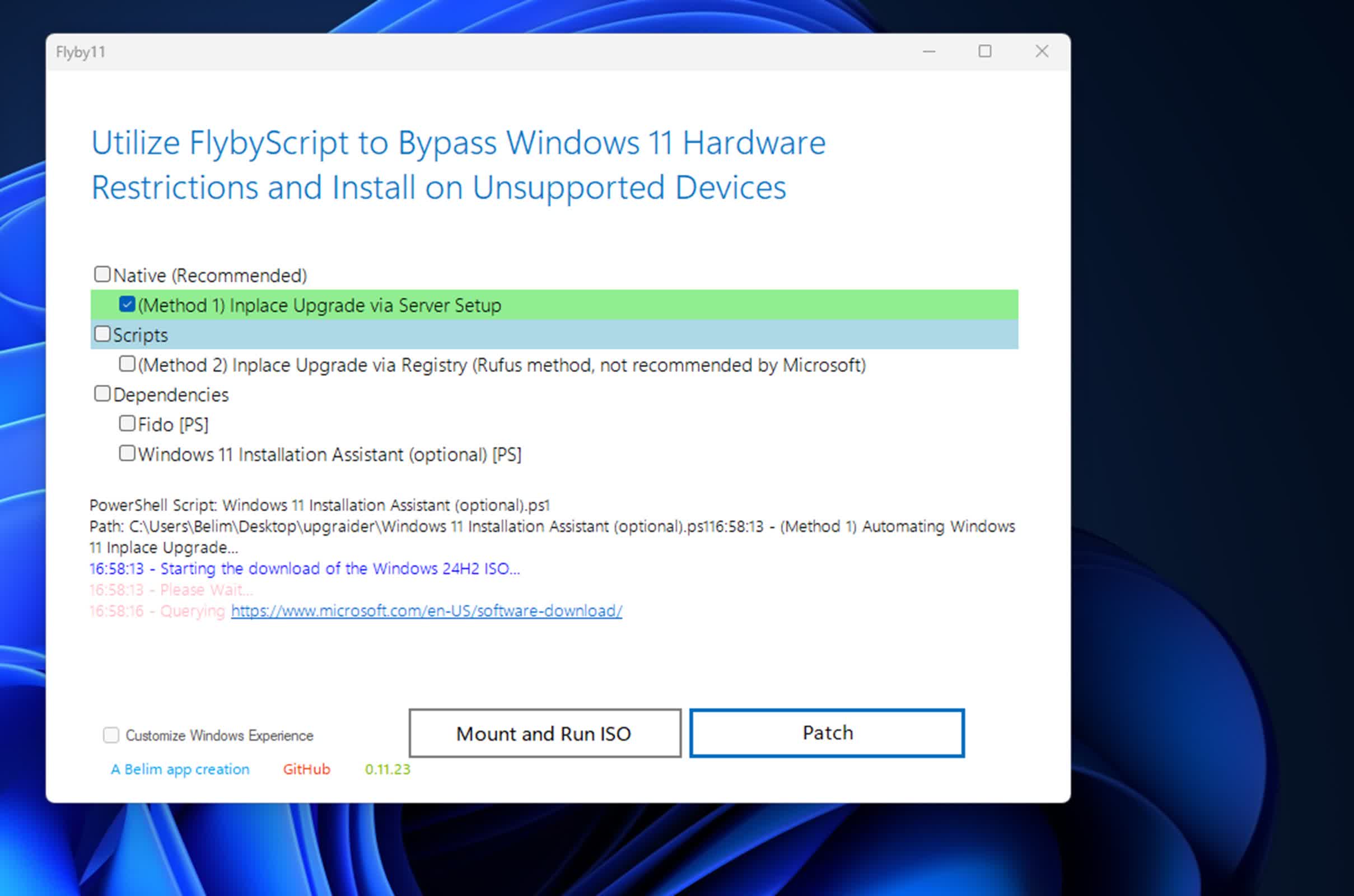Editor's take: The emergence of tools like Flyby11 highlights the ongoing tension between Microsoft's vision for Windows 11 and what its user base wants. As the operating system matures, it will be interesting to see how Microsoft responds to these unofficial workarounds and whether it adjusts its stance on hardware requirements.

A new tool has emerged to help bypass the strict system requirements for Windows 11. The application, spotted by Neowin, is called Flyby11, and it offers a simple way to install Microsoft's latest operating system on computers that don't meet the official hardware criteria.
Developed by Belim, a creator of several Windows customization tools, Flyby11 builds on the success of existing workarounds like Rufus, and offers a fresh approach that may appeal to users looking for alternatives.
Flyby11 sidesteps Windows 11's compatibility checks by taking advantage of a feature in the Windows Server installation process, which typically skips many of the hardware checks found in the standard Windows 11 setup.
Flyby11 provides users with two methods for circumventing Windows 11's system requirements. The first is a native method that leverages the Windows Server setup approach, allowing for an in-place upgrade to Windows 11 without the usual hardware checks. This technique takes advantage of the more lenient installation process for server environments. The second method employs a registry tweak, similar to the approach used in recent versions of the popular Rufus tool. This tweak modifies system settings to bypass compatibility checks during installation.
While Flyby11 opens up Windows 11 to a wider range of hardware, there are some important points to keep in mind. First, the tool is still in its early stages, having been released on GitHub on October 19, 2024. Also, as an unsigned application, it may be flagged as suspicious by Microsoft Defender. Finally, older CPUs lacking SSE4.2 and PopCnt instructions are still incompatible, even with this bypass.
Initial feedback from the tech community has been cautiously positive. Users appreciate the simplicity of Flyby11, though some still prefer the more established Rufus method. As one commenter noted, "No doubt this coder will get a lot of feedback and it will get polished, until then I think I like Rufus."
Microsoft's strict hardware requirements for Windows 11 have been a point of contention since the operating system's release. It requires a processor with a speed of at least 1 GHz, featuring two or more cores on a compatible 64-bit processor or system on a chip (SoC). In terms of memory, a minimum of 4 GB of RAM is necessary. Storage requirements dictate at least 64 GB of available space. The display should be high definition, at least 720p, and larger than 9 inches diagonally, supporting 8 bits per color channel. These requirements have left many machines unable to upgrade officially. As Windows 11 continues to evolve, it's likely we'll see further developments in bypass tools and techniques.
Those interested in trying Flyby11 can find it on the official GitHub repository.
